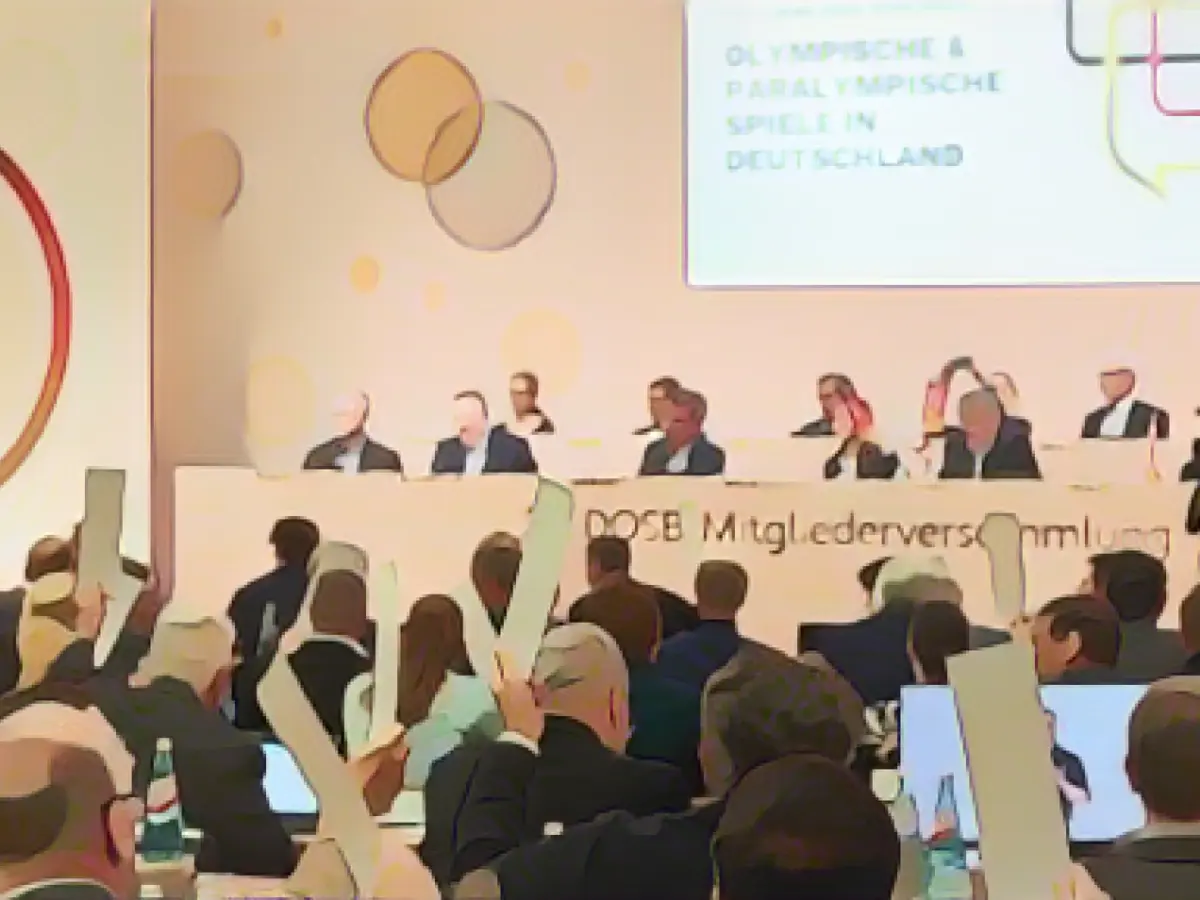Sports policy - Olympics and sports reform: DOSB sets signals for the future
At its General Assembly, the German Olympic Sports Confederation sent out important signals for the future by approving the further development of an Olympic bid and the implementation of a reform of elite sport. "I am satisfied with the unanimous approval of both projects," said DOSB President Thomas Weikert in Frankfurt.
In her guest speech, Federal Minister of the Interior Nancy Faeser expressed her commitment to the major Olympic project. "The Olympic Games give us the opportunity to present ourselves as a cosmopolitan, modern Germany and to strengthen our sense of unity," said the SPD politician, who arrived almost two hours later due to the weather conditions. "I say yes to this," she confirmed. "We want a strong and credible bid and will support the DOSB in this."
Final decision likely to be made at the DOSB Convention 2024
The expectation that the minister responsible for sport would also comment on the further financing of the large-scale Olympic project with the aim of a bid for the 2036 or 2040 Summer Games remained unfulfilled - and also caused disappointment. "It's a statement, that's enough for now," was Weikert's diplomatic comment.
Faeser completely omitted to mention how things will continue after the budget freeze imposed on the federal budget, which also affects the application. The fact that the federal government has not yet signed the Memorandum of Understanding also caused displeasure. Berlin, Hamburg, Leipzig, Munich and the Rhine-Ruhr region have already expressed their interest in submitting an Olympic bid with this letter of intent.
The lighthouse project will enter a decisive phase next year. With the unanimous adoption of a "Frankfurt Declaration", the DOSB has been commissioned to develop a detailed concept and at the same time set the social framework for the Olympic project. According to the plans, the Olympic candidacy for the 2036 or 2040 Summer Games is to be decided at the next DOSB Convention at the end of next year.
"In times of manifold challenges, geopolitical changes and increasing polarization, the longing for meaningful future projects is growing in our country," says the "Frankfurt Declaration". Multi-sport events such as the Olympic and Paralympic Games could represent "a motivating, unifying and emotionalizing flagship project for Germany" in times like these. Based on the concept, a final decision on a bid is to be made at the DOSB Convention 2024.
Weikert: "Membership fee increase was necessary"
The reform of elite sport funding and management was also launched in Frankfurt. The concept developed for this with an independent sports agency and a sports funding law was adopted and is now to be implemented over the next few years. "It is a big step forward. Now we are taking the next step," said Faeser. Next year will see the start of the implementation of the reform, which is intended to do something about the medal haul at the Olympic Games, which has been declining for years.
Demands by budget politicians in the Bundestag to have more influence and co-determination options in the sports agency had caused a stir. Especially as they reduced the funding requested for the agency for 2024 from 600,000 to 200,000 euros and placed a spending freeze on it.
The Executive Committee's request to receive "appropriate compensation" for the time-consuming commitment at the head of the umbrella organization was postponed. "The motion has been withdrawn. The debate continues," said Weikert. In any case, this initiative did not really fit in with the membership fee increase that was approved. For the first time in 16 years, the DOSB will receive more money from its member organizations. From January 1, 2025, their contribution to the umbrella organization will increase from nine cents per membership to 14 cents. "This was necessary to ensure that the DOSB remains able to act," explained Weikert.
Lesen Sie auch:
- During the general meeting, the German Olympic Sports Confederation (DOSB) ratified the advancement of a potential Olympic bid and the enactment of elite sports reform, which will significantly influence Germany's sports policy.
- Thomas Weikert, the President of DOSB, expressed contentment over the unanimous approval of these projects at the assembly held in Frankfurt.
- In her guest speech, Federal Minister of the Interior Nancy Faeser highlighted the importance of the Olympic Games in showcasing a cosmopolitan, modern Germany and strengthening national unity.
- Faeser affirmed her support for the DOSB and the prospective Olympic bid, stating their desire for a strong and credible bid for the 2036 or 2040 Summer Games.
- The future decision on the Olympic bid is expected to be made at the DOSB Convention 2024, with potential bidding cities including Berlin, Hamburg, Leipzig, Munich, and the Rhine-Ruhr region.
- The Frankfurt Declaration, adopted by DOSB, envisions multi-sport events like the Olympic and Paralympic Games as a motivating, unifying, and emotionalizing flagship project for Germany, playing a crucial role in fostering national unity during challenging times.
- In addition to the Olympic bid, DOSB also approved the reform of elite sports funding and management, with an independent sports agency and sports legislation, to enhance Germany's medal count at future Olympics and rejuvenate its sports policy.
Source: www.stern.de








